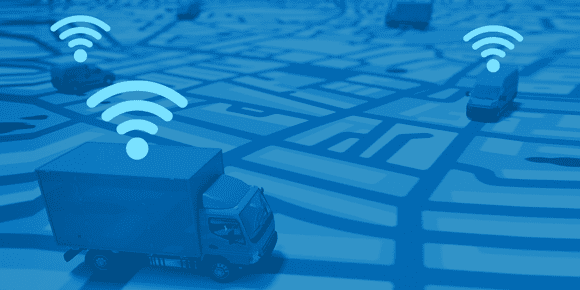Never before have we witnessed such an acceleration in the investment and development of advanced clean transportation technologies as we have in the past 12 months – with truck manufactures, fleets, and regulators all focusing on improving performance, fuel cost savings, and reducing emissions. Significant opportunity lies ahead for fleets of all sizes and fuel types to leverage connected vehicle technologies to achieve these goals.
The commercial vehicle sector has seen a dramatic shift towards advanced technologies that leverage vehicle data to inform decisions. The world of connected technologies is broad, including everything from: real-time route optimization; predictive vehicle maintenance; platooning and automated operations; and other information aimed at increased fuel efficiency, driver comforts and additional factors to improve the bottom line. Furthermore, connected technologies are paving the way for automation, which many predict will transform the traditional heavy-duty transportation landscape.
Trucking has seen a dramatic shift towards advanced technologies that leverage vehicle data to inform decisions.
Connected technologies are now standard across all OEM platforms. Beyond the systems that come from the factory, there is a never-ending world of aftermarket technology options, including a wide array of telematics packages. For today’s fleet manager, it can be extremely daunting to select from the wide range of options and combinations of technologies available in the market today. Additionally, fleet managers can quickly become overwhelmed by the mountains of data that are now available to them via these various connected technology systems.
To make the most of these technologies and data flows, selecting the right systems for the vehicle’s application is a critical first step. Having systems in place to effectively manage, process, present and route the incoming data in an efficient manner must also be a top priority. With the right approach, fleets can see tremendous improvements to asset uptime, driver productivity, fuel efficiency, and environmental footprint can be achieved – all of which benefits the bottom line.
Over the last eight years, the Advanced Clean Transportation (ACT) Expo has evolved with the industry and this year is no exception. Taking place April 30 – May 3, 2018 at the Long Beach Convention Center in Southern California, the conference will feature a connected vehicle technology showcase.
Fleet managers looking to turn data into valuable insights will have the opportunity to learn from their peers who have successfully improved efficiency and effectiveness of their operations through use of connected vehicle technologies. Connected technologies can help fleets of all types—big or small, diesel or alternative fuel—by optimizing performance parameters. The 2018 ACT Expo agenda will cover the following key themes:
- Fleet success stories – highlighting fleets that have successfully improved efficiency and effectiveness of their operations through use of connected vehicle technology
- Maintenance considerations – improving vehicle maintenance with connected vehicle technology components, such as remote diagnostics and tire pressure monitoring systems
- Regulatory requirements – effectively addressing current and future regulations through deployment of connected technologies, including electronic logging devices (ELDs)
- Technology advancements – understanding the current landscape of connected vehicle technologies and how fleets can integrate these into their operations
Connected technologies can help fleets of all types—big or small, diesel or alternative fuel—by optimizing performance parameters.
In addition to the connected vehicle technology showcase, the ACT Expo program will feature topics that cover trucking efficiency, commercial vehicle electrification, gaseous and renewable fuels, as well as trends and technologies shaping the future of urban mobility and goods movement.
The ACT Expo show floor will give attendees hands-on access to the wide range of advanced clean transportation solutions available—including the latest products to increase fleet efficiency; telematic solutions and connected vehicle technologies; electric-drive platforms, including innovative hybrid systems; and an array of alternative fuels and propulsion systems such as hydrogen fuel cell vehicles, natural gas, propane autogas, renewable fuels, and more. From vehicles to motors, equipment and fueling infrastructure—today’s latest innovations and next generation technologies will be unveiled and on display.
ACT Expo will feature several partner events, including a trucking efficiency workshop organized by the North American Council for Freight Efficiency and Carbon War Room, a fuel cell in goods movement workshop hosted by the California Hydrogen Business Council, and the Future of Fuels Summit organized by Business for Social Responsibility (BSR), among others.
Speakers, sponsors, and partnerships will be announced in the coming months. Discounted registration is open through February. For more information, visit www.actexpo.com


